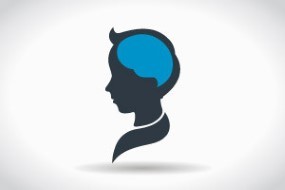Diploma in Educational Psychology
Explore the theories and practices of educational psychology to help you to plan, create and deliver effective lessons that reach everyone in class.
This diploma course helps you improve your teaching methods to fulfill your role more effectively by exploring classroom psychology. Teaching can be very challenging when confronted with the many different personalities and learning levels of students. How do you accommodate all of these different characters and abilities in a classroom? This diploma course helps you to use your newfound knowledge of psychology to complete this difficult task.
What You Will Learn In This Free Course
Introduction to the Learning Process
This module will introduce you to two main learning theories and four different domains of learning. You will also learn about curriculum learning and incidental learning.
Behaviourism
You will be introduced to behaviourism and operant conditioning. You will learn about research into operant conditioning using laboratory rats and how this research has influenced learning in the classroom.; Module
Constructivism
You will be introduced to constructivism and its two main branches – psychological constructivism and social constructivism. You will also learn about assimilation and accommodation in relation to constructivism.
Diploma in Educational Psychology – First Assessment
You must score 80% or more to pass this assessment.; Module
Introduction to Special Education
In this module you will learn how to correctly define special education and the main responsibilities of teachers who teach students with special educational needs. You will be introduced to the concept of least restrictive environment and how to modify assessments for students with special educational needs.
Learning Disabilities
Learn how to correctly define learning disability and how to distinguish a learning disability from other types of disabilities. You will be introduced to strategies that can help students with learning disabilities.; Module
Attention Deficit Hyperactivity Disorder (ADHD)
This module introduces Attention Deficit Hyperactivity Disorder (ADHD) and behavioural signs exhibited by students. You will learn about the drugs that students with ADHD take to reduce their symptoms and practical problems associated with taking these drugs. The modules also describes strategies that a teacher can use to teach students with ADHD.
Intellectual Disabilities
You will learn how to distinguish between an intellectual disability and a learning disability, and the strategies that teachers use when teaching students with intellectual disabilities.; Module
Behavioural Disorders
You will learn about potential types of triggers of inappropriate behaviour. You will be introduced to examples of problematic behaviour that a student with a behavioural disorder might display and strategies for teaching students with behavioural disorders.
Physical Disabilities and Sensory Impairments
You will learn to recognise the signs of hearing loss and visual impairment and strategies for teaching students with hearing loss and visual impairment.; Module
Diploma in Educational Psychology – Second Assessment
You must score 80% or more to pass this assessment.; Module
Student Development
This module differentiates between learning and development and outlines ways that students’ development is relevant to teachers. You will be introduced to different developmental models such as the staircase model and the kaleidoscope model of development.
Physical Development
You will learn about puberty and the types of physical changes that occur during puberty. You will be introduced to trends in the height and weight in students, and factors that contribute to a rise in obesity levels. The module also describes the importance of developing motor skills in young children.
Cognitive Development
This module introduces the work of the famous Swiss psychologist Jean Piaget who developed the four stage cognitive development theory. The module outlines the ages at which each of Piaget’s stages occur and describes each of the four stages in detail.
Social Development
This module introduces research into social development such as Erikson’s eight stage model of social development. You will learn how changes in social development affect student behaviour in the classroom.
Moral Development
You will learn how to distinguish between morality and moral development, and between morality of justice and morality of care. The module introduces the work theorists such as Kolberg and his theory of moral development, and Gilligan’s theory of moral development.
Student Diversity
This module introduces the concept of individual learning styles in students. You will learn how to distinguish between field dependence and field independence, and between the two cognitive styles of impulsivity and reflectivity.
Gender Differences
This module describes ways that gender differences affect students in day-to-day classroom life, and what are the implications of gender differences in the classroom. You will learn about differences in the way that boys and girls usually socially interact, and how teachers can influence gender roles.
Cultural Differences
You will learn about bilingualism and compare and contrast the two second language teaching techniques – total immersion and additive approach. The module helps you identify what a culture is and how language is used differently across various cultures.
Diploma in Educational Psychology – Third Assessment
You must score 80% or more to pass this assessment.; Module
Course assessment
User Reviews
Be the first to review “Diploma in Educational Psychology”
You must be logged in to post a review.







There are no reviews yet.